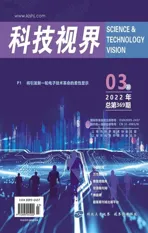Analyzing Brochure for University from the Perspective of Transitivity
2015-08-15刘盛兰
刘盛兰
(湖北大学知行学院外语系,湖北 武汉 430011)
0 Introduction
In the view of Halliday’s functional grammar,transitivity which is a vital component of the ideational metafunction focuses on how language works in representing language users’experience in the world[1].Transitivity indicates the relations of participant,process and circumstances in a clause,explaining the content meaning about“who did what to whom”[2].Thus,transitivity analysis contributes to explain how the textis constructed in the social world to achieve the goal of realizing potential meaning.In this essay,the analysis of the extract will mainly focus on the perspective of transitivity.By figuring out the tension among participant,process and circumstance in differentiate process types,the potential meaning that the writer delivers and how it serves to reveal the purpose of this text will be explored.
1 Text Analysis
The extract is selected from undergraduate student’s brochure of University of Warwick.The market force-led model of higher education has transformed the role of university from selecting students into being selected by students[3](Fairclough,1993).University brochure can be regarded as a promotion medium like advertising,selling education to consumers known as students.
Two main transitivity process types are involved:material process and relational process.Material process is the essential types.
Material process occupies the main position in this text.You consistently appear as the Actor in the material process sentences and simultaneously the theme of these clauses.The writer uses“you”to directly address the potential students,which constitutes an intimate relationship between the university and student.Actor is responsible for the material verbs and is the one who do the process[1].The writer positioning students in the actor implies that the university values every student and attaches great concern to their future development.“Latest thinking”,“most recent development”,“a mass of specialized knowledge”,“interesting subject”are presented as Goal.These nominal groups are the participants who undergo the material process and affected by the action of Actor“You”.The nouns in the nominal groups of the goal are modified with positive lexis,such as“the latest”,“most recent”,“particular”,“a mass of”,and “new”.These adjectives with high modal value further underpin the description of the education qualityofthe university,seeking tobuild up students’confidence to the university and persuading them to making the decision.Furthermore,material process is realized in the verbs “choose to”,“will learn”,“take an option”,“can find out”,and“encounter”in an active voice.These verbs manifest that students play an active role in the process of studying at Warwick.Additionally,the actor ceases to be“you”but“we”.The first-person plural excusive “we”personalizes the university so as to construct corporate identity,indicating that readers can enjoy elaborately designed courses once becoming the students of Warwick.
There are three relational process types in the text,both of which are identifying relational clauses.“Warwick”as the token indentifies the value“one of the UK’s leading research universities”,which evidences specific to general identity direction.“In-depth study of a particular subject or subjects”embodies “the core of a Warwick degree”,forming the general to specific identity direction.The token are specific embodiments of general value[2](Thompson,1996).Author’s value or judgment also reveals in this process.Positive adjective“leading” ensures the value of this university.The value of Warwick as the leading research university is strengthened by delicate and excellent staff,reasonable course setting,and comprehensive learning of subjects and so on,convincing the “customer” of the value of the university.It is prominently the advertising genre[4],for obscurely imposing attitude or opinion of language users on target audience.This Token-Value structure,according to Swales[5],is the vital element in“scientific,commercial,political and bureaucratic discourse”.
Unlike in the identifying relational process that the two participants can mutually identify each other,attributive relationalprocess is irreversible.According to Hodge and Kress[6],attributive relational process describes certain quality of the entity.Student is ascribed as a member of the university,constructing the sense of belongingness so as to establishes a tight and harmonious relationship between students and university.
Analysis the transitivity process of the text is limited since it is just one aspect of clause meaning,realizing the experiential metafunction[8].Finite verbal operators “Can”and “will”express low and median modal values which concern the degree of writer’s commitment.The use of those modalvalues indicatesthe university’spromisesto the students.Moreover,unlike those commercial advertisements,university brochures mainly contain declarative sentences,which establish the serious,professional status of the university.This feature distinguishes university publicities from common commercial promotion.
2 Conclusion
Many aspects can be involved in analyzing a text in order to explore the ideational,interpersonal and textual meanings.In this essay,focus has been placed on the transitivity.By analyzing different process type of transitivity and observing the relationship between participants and process,we can see how the text is established in the social context in order to convey latent meaning of the writer.In this brochure analysis,students as the potential customer place in the centre position of the university.As a reader,I receive sufficient information about what I seek to know.Additionally,Ialso clarify the tension between studentsand university.The University values the students and provides beneficiary conditions for students’future development.The brochure presents the writer(the university)’s attitude and satisfactorily achieves the goal of convincing.
[1]Halliday,M.A.K.An Introduction to Functional Grammar[M].London:Edward Arnold Ltd,1985.
[2]Thompson,G.Introducing Functional Grammar[M].Oxford:Oxford University Press,1996.
[3]Fairclough,N.Discourse and Social Change[M].Oxford:Polity Press,1992.
[4]Benwell,B.and Stokoe,E.Discourse and Identity[M].Edin-burgh:Edinburgh University Press Ltd,2006.
[5]Swales,J.M.Genre Analysis[M].Cambridge:Cambridge University,1990.
[6]Hodge,R&Kress,G.Language as Ideology[M].2nd ed..London:Routledge,1993.
[7]Eggins,S.An introduction to Systemic Functional Linguistics[M].2nd ed..New York:Continuum International Publishing Group,2004.
